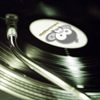 Multiband Compression Multiband Compression |
Sephiroth 
Master Producer
   

Registration Date: 11-04-2006
Posts: 741
Helpfulness rating:
 |
|
what sort of tips and tricks can people give me for compressing bass and drums? how should the compression differ on the two elements? what compression settings do other people use?
cheers
__
Sephiroth Soundcloud: http://soundcloud.com/sephiroth_rees
Sephiroth Myspace: http://www.myspace.com/sephirothdnb
C-Sonix Soundcloud: http://soundcloud.com/c-sonix
C-Sonix Myspace: http://www.myspace.com/csonix
|
|
|
30-12-2007 12:00 |

|
|
BattleDrone 
2161... the future.
    

Registration Date: 30-12-2005
Posts: 6,413
Helpfulness rating:
 |
|
The easy way is checking presets of the (multiband compressor) you are using and see what they do with your sound. When you hear a preset you like you can try to carefully tweak it in order to make it even better (at which you'll fail horribly in the beginning). This way you can try and figure out how it works.
Basically multiband compression is like several compressors (mostly 3, but you can switch them on and off) that compress their part of the spectrum in a different way. So you can compress your bass very hard and the high end very light.
For drums I tend to use the Isotope Ozone Drums setting with some minor adjustments and switch of reverb and stereo image to lower cpu usage (and because I like it better that way). It gives me the desired puchy phat sound I want to have on drums and the mids stand out a bit more.
For bass I don't think you need a multiband compressor. If you want to treat the different parts of the bass differently I'd advice you to split it up into 3 mixer channels (sub, low, mid), add fx as desired and compress each to taste with a normal single band compressor.
Multiband compressors tend to be very cpu intensive and cause quite some latency so - as I'm using FL studio which doesn't feature auto latency compenssation - I try to avoid them on parts of the mixdown. If my breaks/drums need this kind of compression I'd do it on the master and bounce only the drumsample(s) so the can do without the compression when I reload them.
Finally, if you need more documentation on compression, there's a very good tutorial on DOA about this: You can find it here
__
 Check my soundcloud (exclusive tracks on there) Check my soundcloud (exclusive tracks on there)
|
|
|
30-12-2007 15:32 |

|
|
Seven Gun 
dotbee 4eva
    

Registration Date: 16-01-2007
Posts: 2,232
Helpfulness rating:
 |
|
something i have never got my head round, is multiband compressors.
very dissapointed in myself actually because i have read in the david carbone tutorial
that they are the single most powerful tool for getting
a loud and clean sound.
__
"When you lose, dont lose the lesson"
|
|
|
30-12-2007 16:13 |
|
|
Muad'Dib 
Andrejnalin
    

Registration Date: 02-12-2003
Posts: 4,197
Helpfulness rating:
 |
|
Be sure to first check out our own thread with the collection of articles: Tutorials / Knowledge base thread (read all production related informations here!)
go to the compression part and check out the articles there.
Multiband compressor is something which came up for the hardware sound engineers. Hardware sound engineers were using hardware compressors to compress sound, and, unless they had like 20 of such hardware compressor units, they were unable to master the signal like they liked (because instead of fine tuning the compressor settings on each separate channel/instrument, they had to do it on maximum of several of them or just the master channel).
So, multiband compressors came as a more versatile tool for compression purposes. You could now set up different settings for different spectrums of the master sound, and pronounce or kill certain characteristics of the instruments(which lie in those special spectrums) more precisely and effectively.
But multiband compressors almost lost sense in this era of DAWs (Digital Audio Workstations), because you can add up as much compressors on any audio channel as you prefer, and that won't be anything special.
So, tips and tricks - if you don't necessarily need to enhance certain traits in separate instruments, use single band compressor on all of them instead.
PS Be sure to check out that Project Studio Handbook section about compression.
__
Thinking about becoming an Image-Line/FL Studio customer? Want a 10% reduction in price? Use this affiliate link:
http://affiliate.image-line.com/BADEBDG473
There is no such thing without its opposite
-Bene Gesserit
|
|
|
30-12-2007 16:26 |

|
|
Invent 
Cool Producer
 
Registration Date: 03-09-2005
Posts: 179
Helpfulness rating:
 |
|
L3-16 from WAVES is a mean ass multiband compressor, but the local one from cubase works great too...
i try to lift up that last bit from the mix and often compare the final with another released track...
|
|
|
03-01-2008 19:44 |

|
|
|
